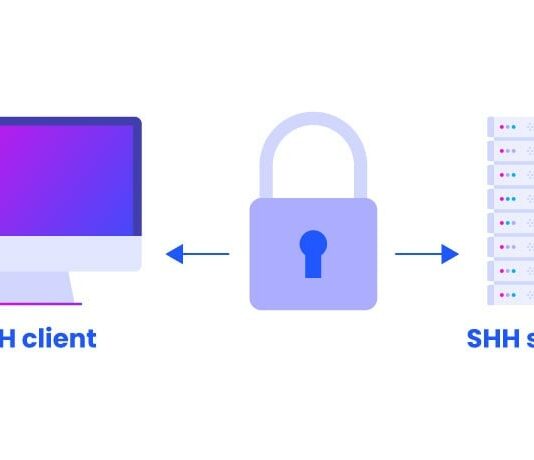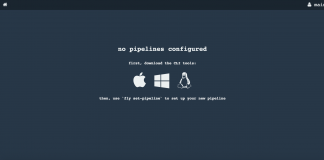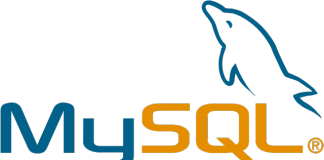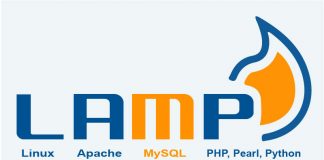Decentralized Communication with Matrix on Ubuntu 16.04
Introduction to Decentralized Communication
Matrix is an open standard for real-time, interoperable and decentralized communication over IP, used to power VoIP/WebRTC signalling, Internet of Things communication, Instant...
Continuous Integration: Concourse CI on Ubuntu 16.04
Concourse Continuous Integration System
Concourse CI is a simple and scalable continuous integration system with an end goal of providing a system with as few...
Database System: PostgreSQL Replication on Ubuntu 16.04
PostgreSQL Database System
PostgreSQL is an advanced open source Object-Relational Database Management System (or ORDBMS). It is an extensible and highly-scalable database system, meaning that...
Control Tool: How To Install Webmin on CentOS 7
Introduction - A Web Based Control Tool
Webmin is a web control tool for UNIX (and other similar systems) which simplifies the management process. Normally, configuration...
Network Analysis: How To Install Bro On Ubuntu 16.04
Introduction: Bro Network Analysis Framework
Bro is an open source network analysis framework with a focus on network security monitoring. It is the result of...
NoSQL: How To Install OrientDB on Ubuntu 16.04
Introduction - NoSQL and OrientDB
When talking about databases, in general, we refer to two major families: RDBMS (Relational Database Management System), which use as...
eCommerce: Open eShop on Ubuntu 16.04
Introduction - Open eShop eCommerce Platform
Open eShop is an open source software for eCommerce platforms. It is a platform developed to sell digital goods...
Monitoring Server: Install Zabbix on an Ubuntu 16.04 Server
Monitoring Server - What is Zabbix
Zabbix is an enterprise-class open source distributed monitoring server solution. The software monitors different parameters of a network and...
Encryption: How To Secure an NGINX web server on Ubuntu 16.04
What is Let's Encrypt
Let's Encrypt is a free certificate authority brought by the Internet Security Research Group (ISRG). It provides an easy and automated...
Container: Docker Compose on Ubuntu 16.04
What is Docker Compose
Docker Compose is a tool for running multi-container Docker applications. To configure an application’s services with Compose we use a configuration...
Tutorial: How To Install Debian 9 ‘Stretch’
Introduction
After 26 months of development the Debian project released its new stable version, Debian 9, code name 'Stretch'. Thanks to the work of the...
Analytics Engines: Elasticsearch 5.4 on Ubuntu 16.04
Elasticsearch - A Distributed Analytics Engine
Elasticsearch is an open-source, highly scalable, full-text search and analytics engine. It is part of a full stack called Elastic...
Logs Management: Graylog 2 on Ubuntu 16.04
Graylog: a powerful logs management system
Graylog is an open source logs management system which parses and enriches log messages, wire and event data from...
Install MongoDB 3.4 Database System on Ubuntu 16.04
Introduction to the MongoDB Database System
MongoDB is an open source database system, classified as NoSQL. Unlike a relational database, MongoDB stores data in documents,...
Install and configure Munin master on Ubuntu 17.04
Introduction
Munin is a monitoring tool that can help analyze resource trends, presenting information in graphs through a web interface. The installation come with a...
How to configure remote and secure connections for MySQL on CentOS...
Introduction
MySQL is an open source SQL database management system developed by Oracle Corporation.
SQL stands for Structured Query Language, which is a standardized language used...
How to install MantisBT 2.4 on CentOS 7
Introduction
Mantis Bug Tracker, or MantisBT, is a web based bug tracking system, available since November 2000. MantisBT is written in PHP and supports multiple...
How to install LAMP stack on Ubuntu 17.04
Introduction
LAMP stack is a group of tools installed on a server to enable hosting dynamic websites and web apps. The acronym stands for: Linux, Apache, MySQL, PHP.
In this tutorial we'll...
























